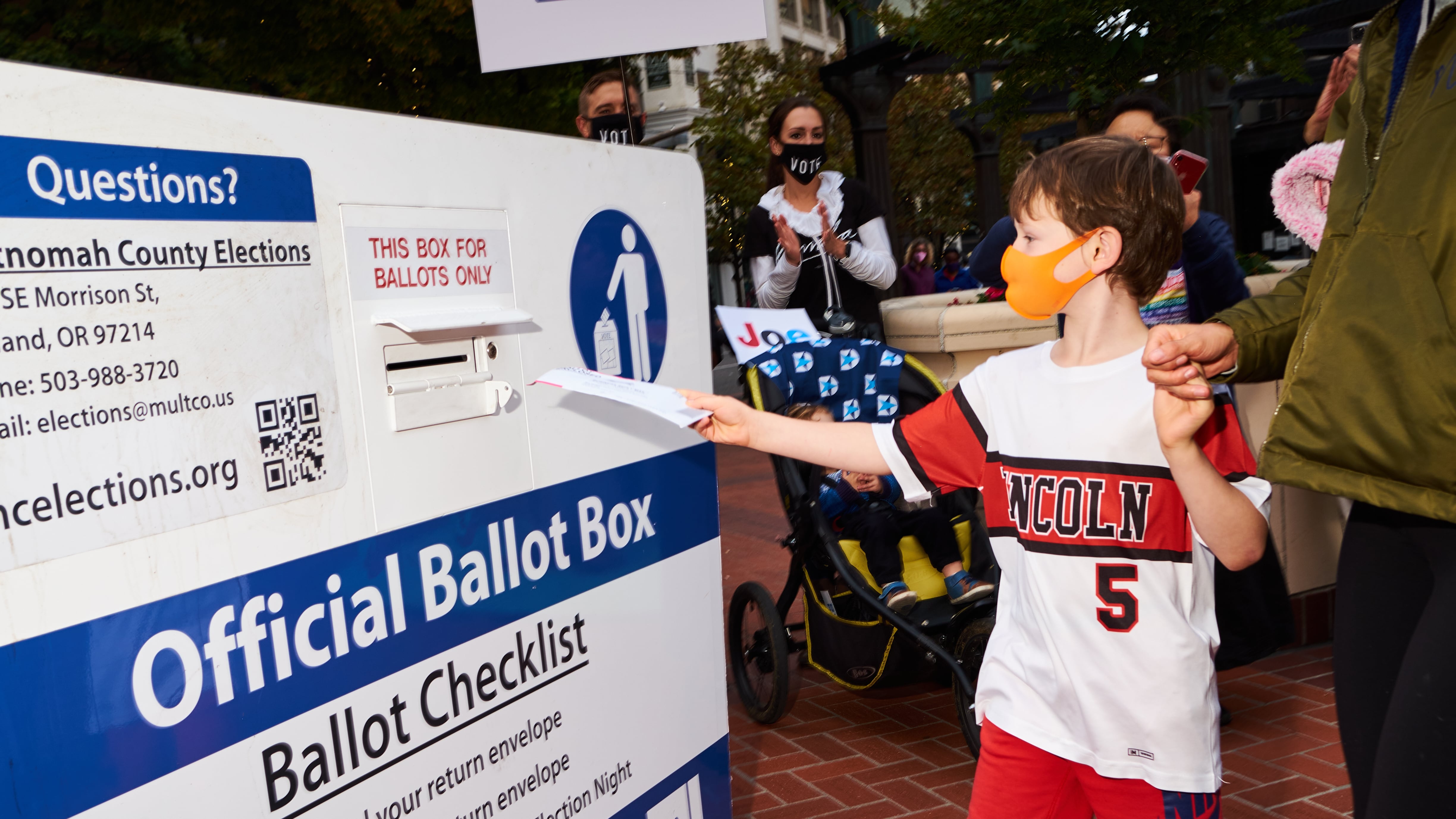As expected, campaign finance reformers took their fight with Secretary of State Shemia Fagan to the Oregon Supreme Court today, asking the court to overrule Fagan’s rejection of ballot measures seeking limits on political giving in Oregon.
Oregon is one of just five states without such limits. But the dispute that could upend the reformers’ effort centers on the rules for qualifying a measure for the ballot.
Fagan last week disqualified three ballot measures proposed by Honest Elections Oregon, saying they failed to meet the Oregon Constitution’s requirement that they include the full text of any Oregon law they seek to change. Honest Elections says the rejection, if not reversed, will cause delays in signature gathering that will keep the measures off the November ballot.
“Secretary Fagan’s interpretation of the Oregon Constitution would deny Oregonians their only chance this year to vote on getting big money out of Oregon politics,” said James Ofsink, president of Portland Forward, a group working with Honest Elections, in a statement. Ofsink is the chief petitioner taking the matter to the state Supreme Court.
Honest Elections Oregon called Fagan’s move “unprecedented” because “no prior secretary of state has required unchanged subsections of statutes to appear in initiative petitions.”
Fagan spokesman Ben Morris says Honest Elections is wrong. “We know previous secretaries rejected petitions for failing to meet the full text requirement,” Morris wrote in an email.
Examples provided by Morris: Former Secretary of State Jeanna Atkins rejected one, on full-text grounds, in 2015 that sought to expand the Bottle Bill, and Bev Clarno rejected one in 2019 that sought to overturn a law allowing people to get Oregon driver’s licenses without proof of legal U.S. residence.
“It’s important to note that regardless of what happened under previous administrations, it is still our obligation to uphold the law and apply it consistently,” Morris said.
Honest Elections Oregon says Fagan’s ruling was based on a “misinterpretation” of the Oregon Constitution, which states: “An initiative petition shall include the full text of the proposed law or amendment to the Constitution. A proposed law or amendment to the Constitution shall embrace one subject only and matters properly connected therewith.”
That seemingly simple clause has been litigated over the years, culminating in the latest fight, with Fagan and Honest Elections sparring over which court decisions take precedence.
